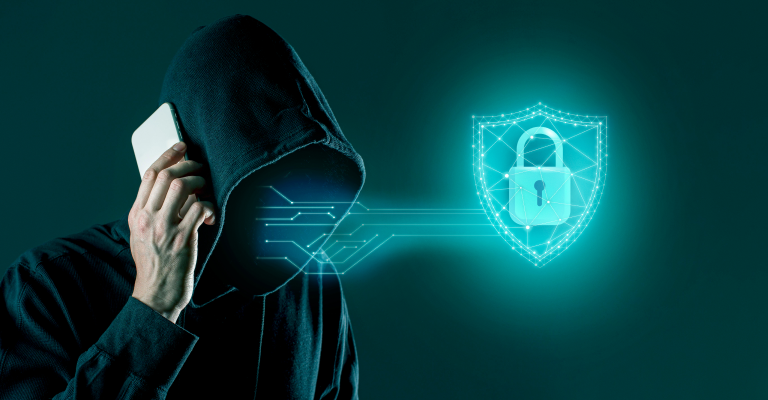The latest technologies like artificial intelligence, virtual reality, augmented reality, and many others are transforming the education sector. One such new tech is digital verifiable credentials (VCs).
They are like digital versions of paper certificated that are super secure and cannot be tampered with. Verifiable credentials are decentralized so even though they are issued by educational institutions, students have full control over them. Holders (students) decide whom to share with, for how long, and exactly what information.
In a nutshell, VCs in the education sector reduce credential fraud, streamline processes at institutions, and enhance security.
EveryCRED offers verifiable solutions curated for educational credentials and for easy understanding, we would like to show you the main use cases of verifiable credentials in the education sector and what are their benefits for institutions, students, and employers.
Read More About Verifiable Credentials: Verifiable Credentials: What Are They, How They Work, Their Importance, and Applications
Benefits for the Education Sector
Verifiable credentials offer many advantages for the education sector:
- Improved Issuing of Academic Documents: Institutions can issue official records much more efficiently in a digital format.
- Learner Control Over Digital Identity: Learners can curate what academic records to share and with whom.
- Reduced Credential Fraud: Cryptographic security makes credentials tamper-proof and instantly verifiable.
- Easy Verification: Third parties can immediately verify credentials without contacting the institution.
- Cost and Time Savings: Institutions save on the costs and labor of issuing and verifying paper credentials.
- Sustainability: Digital credentials reduce paper and energy waste compared to traditional methods.
For example, when a student applies for a job, they can share only the specific credentials required, and the employer can instantly verify their authenticity. This speeds up the hiring process. Such ease of sharing and verification enables new opportunities for learners to prove their qualifications throughout their careers.
1. Issue Digital Degrees/Diplomas and Certificates
One of the biggest ways verifiable credentials are being used in education is for creating digital diplomas and certificates. Schools/universities can take advantage of blockchain tech to make these digital documents that are tamper-proof and can be verified instantly. This helps prevent fake degrees and makes it easier for graduates to share their achievements with employers.
For example, the Massachusetts Institute of Technology (MIT) is already giving out digital diplomas using verifiable credentials. Graduates get a secure digital diploma that they can easily share, and employers can quickly check that it’s authentic.
2. Simple Student Onboarding and Access Management
VCs can also make it easier for students to sign up for classes and access school resources. By using digital student IDs as verifiable credentials, schools can make sure only authorized students can enter campus buildings, use online learning tools, and more. This gets rid of the need for physical ID cards, which can be lost, stolen, or copied, and makes it easier for schools to manage access.
Additionally, verifiable credentials can be used to store and share important student information, like enrollment status, course registrations, and financial aid eligibility. This allows different departments and systems to share data more efficiently, so students don’t have to keep providing the same information over and over.
Check: 14 Real-World Verifiable Credentials Use Cases & Applications
3. Easier Transfer of Schools/Institutions
Verifiable credentials can also help students transfer credits and switch schools more easily. When schools issue course completion records/certificates as verifiable credentials, students can easily share their academic achievements with other schools when transferring or applying for advanced programs.
This makes the credit transfer process simpler for students and allows the new school to quickly and securely verify that the academic records are authentic. As a result, verifiable credentials can help remove obstacles to changing schools.
4. Keep Student Records Safe and Organized
Verifiable credentials offer a more secure and efficient way to keep student records compared to traditional methods. By storing student records, such as attendance, grades, and disciplinary actions, as VCs on a blockchain, schools can ensure that this sensitive data remains intact and can’t be tampered with.
Moreover, using VCs can help educational institutions comply with strict data privacy laws, such as the General Data Protection Regulation (GDPR) in Europe and the Family Educational Rights and Privacy Act (FERPA) in the United States. With VCs, you give students control over their data and allow them to choose what to share. Verifiable credentials empower learners to manage their personal information while still letting schools keep necessary records.
5. Job Skills and Career Readiness
VCs aren’t just for academic achievements; they can also be used to certify skills, competencies, and professional qualifications. This is especially useful for workforce development and career readiness programs.
For instance, community colleges and vocational schools can give out verifiable credentials for industry-recognized certifications, which allow students to prove their job-ready skills to potential employers. Similarly, employers can use verifiable credentials to check the qualifications of job applicants. This makes the hiring process smoother and ensures a better match between candidates and positions.
6. Collaboration and Partnerships
Verifiable credentials can encourage collaboration and partnerships between schools, employers, and other stakeholders. With a common framework for issuing, sharing, and verifying credentials, VCs create opportunities for organizations to work together more effectively.
For instance, universities can partner with employers to co-design and co-deliver training programs that meet industry needs, with the resulting credentials being recognized and valued by both parties. Similarly, schools can collaborate to create joint programs or share resources, with verifiable credentials serving as a trusted way to validate student achievements across multiple institutions.
Also Read: Key Differences Between Centralized Identifiers and Decentralized Identifiers
7. Trust in Online Learning and Remote Test-Taking
As online learning and remote test-taking have grown quickly, there is a need for secure, reliable ways to verify student identities and prevent cheating. Verifiable credentials can tackle these challenges by providing a tamper-proof way to confirm students are who they say they are and ensure the integrity of online tests.
For example, online learning platforms can give out verifiable credentials to students after they successfully complete identity verification processes, such as biometric authentication or live proctoring. These credentials can then be used to grant access to online exams and assignments, making sure only authorized students can participate.
8. Self-Sovereign Identity (SSI) for Students
VCs are a key component of self-sovereign identity (SSI) – an approach where individuals have ownership and control over their own digital decentralized identity. Students can hold their credentials in a digital wallet on their device and choose what to share with each third party.
This protects their privacy while enabling them to benefit from their verified achievements. SSI will be increasingly important as education becomes more personalized and modularized.
Final Words
Verifiable credentials offer a powerful solution to many of the challenges facing education today. From issuing digital diplomas and simplifying student sign-up to enhancing trust in online learning and fostering collaboration, the potential uses of verifiable credentials are vast and transformative. The use cases of verifiable credentials in education will become a necessity in the future so why not adopt this technology today?
Is your institution ready for verifiable credentials? EveryCRED provides a complete solution to design, issue and verify digital credentials on the blockchain. Contact us to learn more about how VCs can be useful in your school/university.

 13th September, 2024
13th September, 2024 



